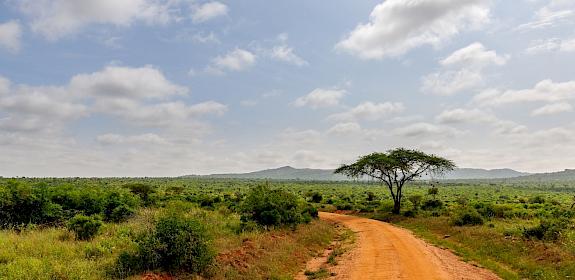Timber exploitation: The China-Africa Dialogue for closer collaboration on forestry legality
Douala, Cameroon, May 2017—A meeting between forestry representatives from Cameroun, Congo and China took place last month, aimed at strengthening legality within the forestry sector and in particular the international trade in timber.
More than 40 delegates included representatives from wildlife Ministries and Customs; Management and Scientific Authorities for the Convention on International Trade in Endangered Species of Wild Fauna and Flora (CITES); the German Government, the private sector; and local and international NGOs including WWF, IUCN and TRAFFIC.
The meeting took place as part of the Forum on China-Africa Cooperation (FOCAC) Johannesburg Action Plan’s commitments for China and African States to collaborate to address illegal trade in wildlife products.

The illegal exploitation of forests remains a huge challenge for the management and effectiveness of forest governance in the region.
Cameroon, for example, has signed a number of international agreements, including CITES and the European Union’s Voluntary Partnership Agreement (VPA) Forest Law Enforcement Governance and Trade (FLEGT).
Nevertheless, illegal logging issue remains a significant issue together with a range of associated ills including conflict, impoverishment of local communities, significant financial losses to the State, uncontrolled deforestation, corruption and permit abuse.
Some of these factors are compounded through ignorance of the legislative framework and linguistic difficulties between different stakeholders including China, which has become the main consumer of forest products in recent years.
Sound external investment in sustainable, legal timber supplies offers many opportunities for the economic development of Cameroon and other countries of the sub-region.
During his opening remarks, M A Aiguio, Deputy Director of China’s CITES Management Authority and head of the Chinese delegation said: “I hope CITES Management Authorities and Customs in China, Cameroon and Congo will work together to oversee the trade in timber species and establish methods to ensure a swift and efficient service for companies who are involved in timber import and export activities.”
Following the meeting, workshop participants agreed on the development of a forest control and verification system for timber from Cameroon and Congo heading to China; the need for capacity building based on a good knowledge of forest resources and monitoring tools; and the need to maintain ongoing co-operation and dialogue among stakeholders in Africa and China for more effective forest governance throughout the supply chain.
The workshop was organized by TRAFFIC under the supervision of Cameroon’s Ministry of Forestry and Wildlife (MINFOF) and generously supported by the UK Department for International Development (DfID) (now FCDO) and GIZ on behalf of the German Federal Ministry for Economic Cooperation and Development (BMZ) and the German Federal Ministry for Environment, Nature Conservation, Building and Nuclear Safety (BMUB).
About UKAID Forest and Climate

UK department of International Development Forest Governance Market and Climate Project. This project is funded with UK aid from the UK.





